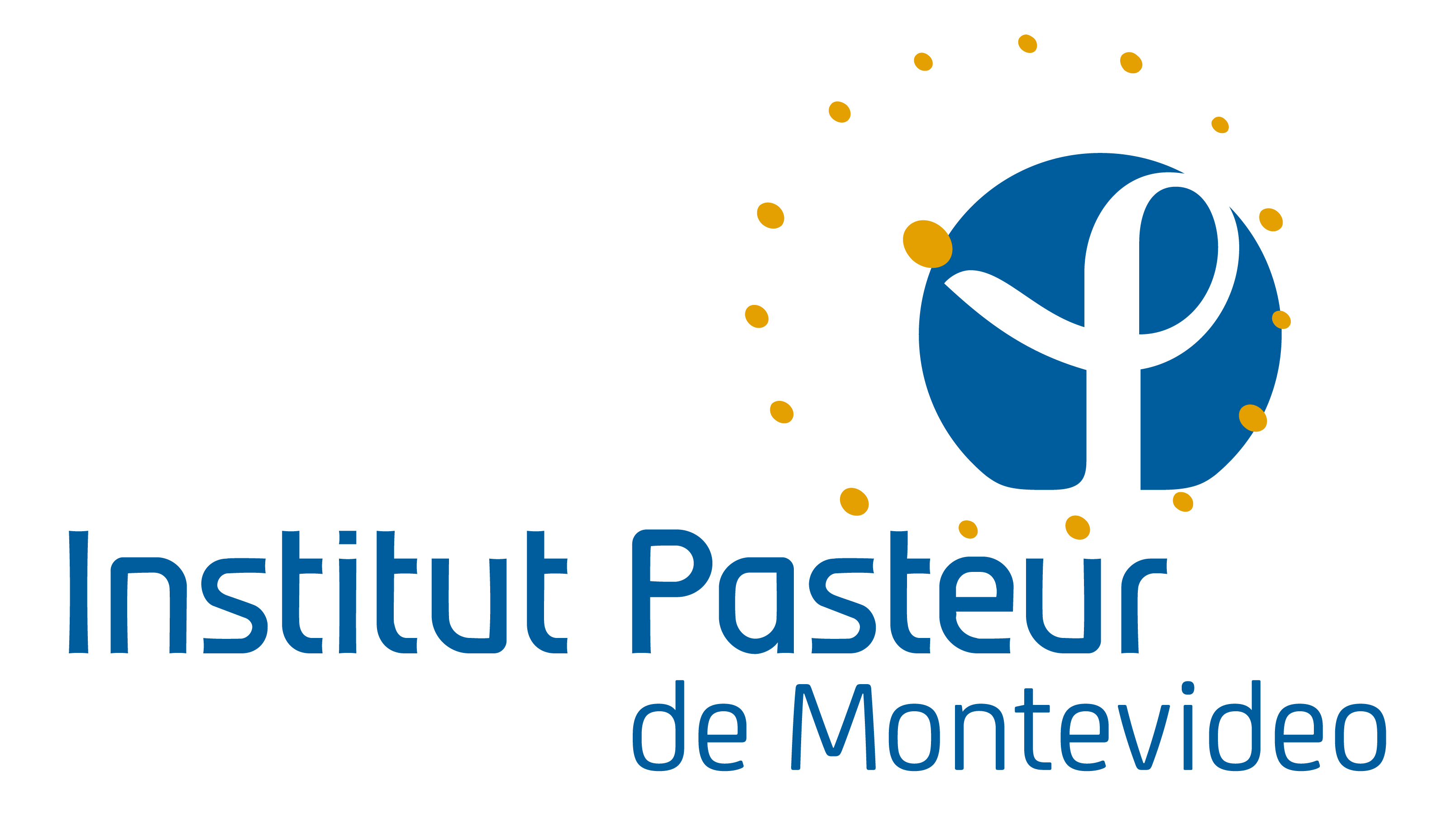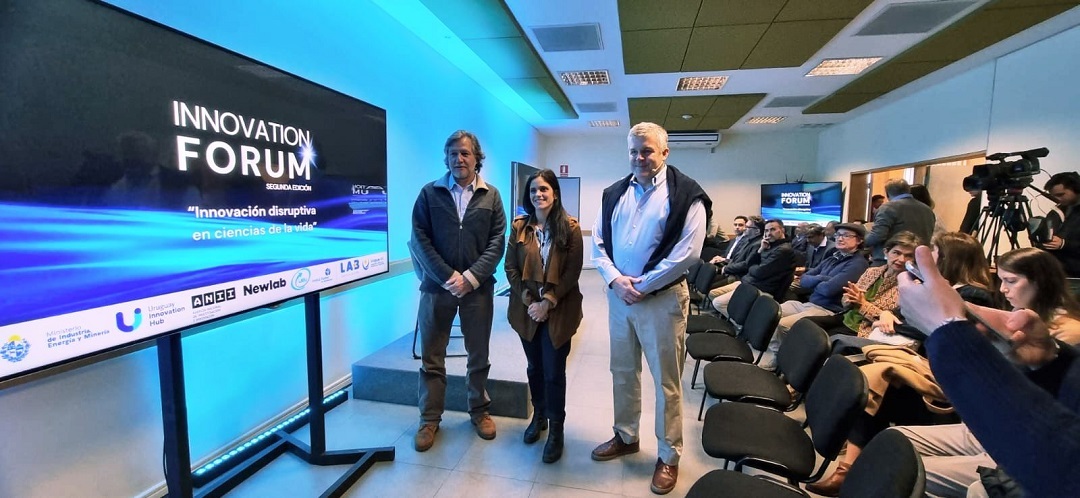The Institut Pasteur in Montevideo hosted on Wednesday October 18th, the second edition of the Uruguay Innovation Forum, a national initiative that brings together several institutions that seek to disseminate innovation activities.
This second edition was entitled “Disruptive Innovation in Life Sciences” and offered different talks that presented the situation of Uruguayan science as an engine for startups based on the generation of local scientific knowledge. The event gathered over one hundred attendees, including researchers, entrepreneurs, and representatives from various institutions and organizations associated with innovation.
The forum is a joint effort between IP Montevideo through its Venture Fund LAB+, the Ministry of Industry, Energy and Mining, Uruguay XXI, Uruguay Innovation Hub, the National Agency for Research and Innovation (ANII), the Technological Laboratory of Uruguay (LATU) and Newlab.
The executive director of IP Montevideo, Carlos Batthyány, inaugurated the event, followed by presentations by the CEO of Surfing Tsunamis, the Argentine expert Ignacio Peña; the senior specialist of the Inter-American Development Bank, Ana Castillo; the CEO of Eolo Pharma, María Pía Garat; the CEO of metaBIX Biotech, Laura Macció; and IP Montevideo researchers Matías Machado and Juan Pablo Tosar, who lead the new projects housed within LAB+.
During his speech, Batthyány spoke about LAB+, the institute’s initiative to promote and finance scientific projects based on disruptive science innovations so that they can become companies that benefit society. LAB+ seeks to promote original and disruptive scientific knowledge developed by Uruguayan scientists and “encourage young researchers to do science and create their own scientific companies,” said Batthyány. In this sense, he emphasized that the creation of startups “takes researchers into an unknown (business) area” but that “it is a necessary challenge for development”.
Meanwhile, Peña, an economist, innovation specialist, and entrepreneurship advisor, shared insights from his report titled “Deep Tech: The New Wave.” This report delved into the state of startups in the region that are founded upon scientific discoveries or substantial engineering innovations. The study -supported by the IADB- focused on 340 startups present in 14 countries in Latin America and the Caribbean that have a total value of US$8 billion.
“Globally, we live in a context with demographic and environmental problems that put quality of life at risk,” he said. “We need a different productive matrix and part of the answer can only come from a profound technological change,” he assured.
Castillo spoke about the IADB LAB, which promotes “the innovation of entrepreneurs in early stages, to benefit vulnerable populations and (face) climate challenges”.
Garat, in turn, spoke about the startup Eolo Pharma, which is dedicated to the development of drugs to treat obesity and its metabolic complications such as type 2 diabetes. Eolo’s lead drug is the compound MVD1, “which differs from others on the market because it does not act on the central nervous system, but directly on adipose tissue”. The case of Eolo is remarkable as it is the sole Uruguayan startup to successfully progress from laboratory-originated knowledge to phase 1 human trials, an accomplishment typically attained only by developed countries.
Also speaking at the forum were two researchers from IP Montevideo whose projects were chosen to be promoted and funded in the first call for proposals made by LAB+ earlier this year. Juan Pablo Tosar, IP and Udelar researcher, presented his initiative called B4-RNA, which seeks early detection of cancer using RNA circulating in the blood, which could be done with a simple blood test.
Matías Machado, who drives the Scaffold Biotech project together with Agustín Correa, spoke about his initiative, which consists of creating vaccines using artificial intelligence and protein engineering to attack different diseases that affect livestock. In particular, Machado mentioned a vaccine against ticks, a parasite that affects the cattle and causes more than US$50 million in annual losses in Uruguay alone.
Finally, Laura Macció talked about MetaBix, a startup that develops predictive technology for diseases caused by viruses and bacteria from environmental samples.

